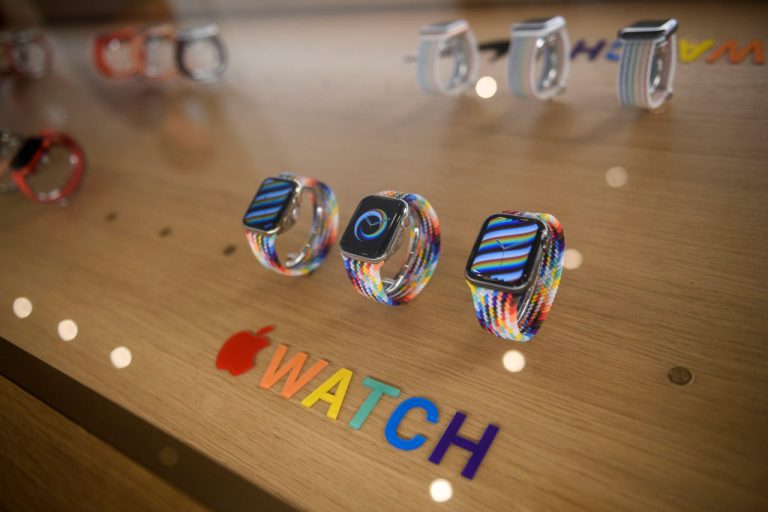Wearable devices that collect employee brain waves for the purposes of artificial intelligence-driven data analysis to monitor the productivity, loyalty, and romantic inclinations of staff will soon become the new normal, according to a presentation at the World Economic Forum’s Davos 2023 event.
The segment was titled Ready for Brain Transparency? and was moderated by the CEO of the Atlantic, Nicholas Thompson and Nita Farahan from Duke University School of Law.
Thompson introduced the segment as a preview of technology that will, “Use brainwaves to fight crime, be more productive, and find love” as he prompted the audience to pay attention to an animated short that served as an introduction.
MORE ON THE WORLD ECONOMIC FORUM
- World Economic Forum 2023 Davos Summit Cancels Elon Musk’s Twitter
- ‘Digital Pandemic’ Preparation: Supply Chain Attack Simulation To Be Conducted Between World Economic Forum and Russian State-Owned Bank
- WEF Members Consider Rising Cost of Living Greatest Risk to World
The animation depicted a woman working on a computer who had just met her deadline to complete a critical memorandum. During the process, AI was able to determine her stress level was rising as the deadline approached, and so her computer was intervened with, delivering an instruction to take a “brain break.”
The short also included portions straight from science fiction dystopia.
Success
You are now signed up for our newsletter
Success
Check your email to complete sign up
In one instance, the woman was distracted, glancing at a new co-worker she was attracted to during her writing job, but was sternly rebuked by the AI with a reddened popup that warned, “Reminder: INTRA-OFFICE ROMANCES ARE STRICTLY FORBIDDEN.”
In another instance, the animation celebrated that the woman’s performance bonus was linked to whether her brain wave metrics were in line with company edicts, including her sleep patterns.
As the clip concluded, Farahan walked on stage and asked a small audience appearing to be composed of a few dozen viewers, “What do you think? Is it a future that you’re ready for?”
The response could be described as restrained and muffled jeering.
“You may be surprised to learn that it’s a future that has already arrived,” Farahan chipperly stated. “Everything in that video that you just saw is based on technology that is already here today.”
One of the key portions of the presentation was a technological innovation underwritten by advancements in AI, allowing the humans who command the machines at present to decode the brain activity of those they monitor.
During her speech, Farahan took a page out of the playbook of the Communist Party as she reduced the existence of human beings to the level of being merely matter, “After all, what we think, what we feel, it’s all just data. Data that in large patterns can be decoded using artificial intelligence.”
And this data was to be collected by “wearable devices that are like Fitbits for your brain,” she said.
The devices presented included headbands, hats, earbuds, and headphones.
Even, “Tiny tattoos that you can wear behind your ear,” will be used for brain wave surveillance, Farahan added.
Farahan’s presentation revolved around “one of the most compelling use cases” for the technology-at-large being the workforce, as she levered viewers and her audience to accept the notion by providing a photo-based example of a trucker who was said to have attempted a 20 hour 1,500 mile non-stop trip before crashing into cars.
According to Farahan, wearable brain surveillance technology would have alerted the trucker’s employer that he was falling asleep.
She was happy to note that no less than the Chinese Communist Party is already using the technology in the Beijing-Shanghai high speed train “where train conductors are required to wear hats that have sensors that pick up their brain activity.”
“Employees are already having their brain activity monitored,” Farahan leveled with her watchers, before attempting to spin the development into a social advancement that “very well may be something we want to embrace as a society.”
But the use cases for employers are not just the safety-based form that nobody would be so brazen to disagree with. Farahan stated that brain surveillance is already “used to monitor productivity of employees,” using the example of an Amazon warehouse.
“Whether or not they’re taking breaks or unscheduled breaks is the kind of thing that employees resist, unionize against, rise up against, and undermines morale,” she noted.
Farahan said, “Well, if you don’t like your job, then just quit.”
“But what if, there’s nowhere to go? What if everywhere has ubiquitous monitoring?” she asked.
“During the pandemic what we found is that 80 percent of companies admitted that they used at least some forms of so-called ‘bosswear’ technology to monitor the productivity of their employees,” Farahan pointed out.
And really, collecting and analyzing brain waves is just the next step in our normal lives, Farahan added, because, “Surveillance is part of our everyday lives. Surveillance for productivity is part of what has become the norm in the workplace.”
“And maybe with good reason,” she said as she cited Salary.com’s Wasting Time at Work Survey as finding that 9 of 10 employees “admit they waste at least some time at work every day.”
The survey, which can be found online and was last conducted in 2014, stated, “The number of people in this year’s survey who reported wasting time at work every day is up to a whopping 89% — a 20% increase compared to last year.”
Specific data, however, showed that 31 percent of that group self-reported spending half an hour per day “on non work-related tasks,” while another 31 percent self-reported spending an hour.
Farahan said the AI monitors not just whether you’re working, but how focused you are, “When you combine brain wave activity together with other forms of software and surveillance technology, the power becomes quite precise.”
The presentation stated that the best way to mitigate employee resistance and rebellion against the shift in workplace paradigm is to provide the devices on an optional basis to employees who want to discipline themselves accordingly.
The book The Nine Commentaries on the Chinese Communist Party, which has led to more than 407 million people renouncing vows made to the Party, the Young Pioneers, or the Communist Youth League, which are mandatory for participation in Chinese society, provides an apt description of the portion of CCP’s nature and operational methodology that Davos and the public-private partnerships it represents appear to be emulating.
In the section On the Unscrupulous Nature of the Chinese Communist Party, the book states, “Another iniquitous characteristic of the CCP is manifest in its changing the definition of cultural concepts and then using these revised definitions to criticize and control people.”
“If you join the Party, it will control all aspects of your life, including your conscience, subsistence, and private life,” the authors continued.
The book further states, “It dictates all matters, from ones as important as who should be the chairman of the country or the minister of defense or what regulations and rules will be made, to as small as where one should live, with whom one can marry, and how many children one can have.”
“The CCP has mustered all imaginable methods of control.”















